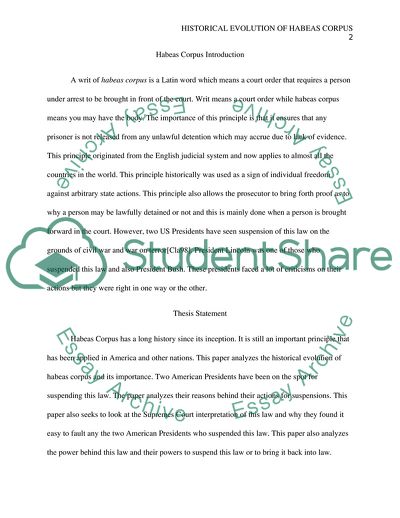Cite this document
(Historical Evolution of Habeas Corpus Assignment Example | Topics and Well Written Essays - 1500 words, n.d.)
Historical Evolution of Habeas Corpus Assignment Example | Topics and Well Written Essays - 1500 words. https://studentshare.org/history/1816406-habeas-corpus
Historical Evolution of Habeas Corpus Assignment Example | Topics and Well Written Essays - 1500 words. https://studentshare.org/history/1816406-habeas-corpus
(Historical Evolution of Habeas Corpus Assignment Example | Topics and Well Written Essays - 1500 Words)
Historical Evolution of Habeas Corpus Assignment Example | Topics and Well Written Essays - 1500 Words. https://studentshare.org/history/1816406-habeas-corpus.
Historical Evolution of Habeas Corpus Assignment Example | Topics and Well Written Essays - 1500 Words. https://studentshare.org/history/1816406-habeas-corpus.
“Historical Evolution of Habeas Corpus Assignment Example | Topics and Well Written Essays - 1500 Words”. https://studentshare.org/history/1816406-habeas-corpus.


